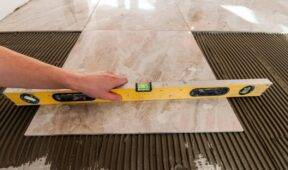What to Do During Down Times Instead of Staring at Your Phone

Downtime. Or, in same cases, dead times: waiting rooms, lines, traffic, the moments in between appointments. Those places where you get nowhere quickly, but live in effective purgatory, embracing neither productivity or relaxation. To the overly ambitious (or those suffering from some form of adult ADHD), these are the times that try your soul in that special kind of slow-drip water torture way.
Sure, you could kill your dead time by scrolling through Instagram. You may even decide to do something useful with your phone, like one-liner email replies or clearing out your old voicemail. But what if you want to occasionally limit your exposure to the little blue screen that wasn’t a crucial part of human existence before 2007?
In lieu of time-killers, here are four suggestions for time-fillers that you can perform with absolutely no equipment other than your mind and your body (as well as one that requires a simple piece of string). These are especially helpful if you’re stuck in a situation where you really shouldn’t be using your phone, like stop-and-go traffic.
1. Breathing practice
Take a moment to breathe and pay attention to what’s moving. If it’s your chest, you’re not filling your lungs with enough air, which is helping to kick in your fight-or-flight response. (No wonder you’re so stressed out.) Now place your hand on your stomach and make it move by expanding your belly as you breathe into it. Did that feel awkward? Yeah, you need practice.
2. Practicing observational skills
Observational skills are surprisingly refreshing to practice, often calming to cultivate, and can be incredibly useful. This one’s really easy: simply tilt your head back up to where your gaze makes a 90-degree angle with your body… and look around. For real. That’s it.
Now that you’re looking around, try to start noticing things. Make a mental catalogue of what you see. What colors do you notice? What materials are your surroundings made of? Are they in perfect condition, or do they show patterns of wear?
You can even begin to engage the rest of your senses. Are there any pronounced smells in your surroundings? What do you hear? Try to distinguish the obvious, higher-pitched sounds from the deeper, almost imperceptible sounds.
Want to level up your observational skills? Here's the ManMade guide to writing haiku.
3. Mental rehearsal
What’s one of the most powerful tools used by elite military and athletes? The discipline of mentally walking through the task at hand before performing it. Doing so paves the neural pathways that will be needed when you actually do what you’re imagining, whether it’s prepping for an upcoming basketball game, visualizing yourself giving a presentation at work, or running through what to do if a fire broke out in your home.
/https://assets.manmadediy.com/photos/31817/how-to-tie-a-bowline-3original.jpg)
4. Develop muscle memory
I actually keep a small length of paracord in my pocket to practice my knot tying skills. Do I look silly in line at the bank? Who cares? I'll never see those people again.
Maybe you want to work on a bit of sleight-of-hand for winning bar-style bets, or an alternative way to shuffle and deal a deck of cards. (I once knew someone who wanted to be a turntablist who kept a cheap cross fader in his pocket to work on his five-finger “crab” scratches.)
There are plenty of little things that you can have on you that you might not want to dedicate an evening to learning the habit, but will be happy to have fill your waiting room time.
Interested? Here's the ManMade list of the three knots you actually need to know.
5. Mindfulness meditation
You’ll have to close your eyes for this one, so I don’t recommend it for traffic unless you don’t mind a friendly honk from the car behind you. Taking several minutes a day to reconnect your mind to your body, and to train your mind to observe thoughts instead of getting tangled up in them, is an incredibly effective stress reliever. To get the hang of it, there are some great apps out there. (I personally recommend Headspace's free 10-day “Take Ten” series.)
BONUS! Memory palace review
This requires actually setting up a memory palace ahead of time, which is a subject for another post, but it’s worth mentioning here.
A memory palace is an older-than-dirt tool originally used by ancient Greek orators to memorize long speeches, but can be used for reliably encoding any kind of information into your long-term memory with little effort: credit card numbers, historical dates, foreign language vocabulary, anatomy terms for med school, Brazilian jiu-jitsu moves, you name it. Sitting on your butt in a waiting room is a great time to review the information stored in your palace.









